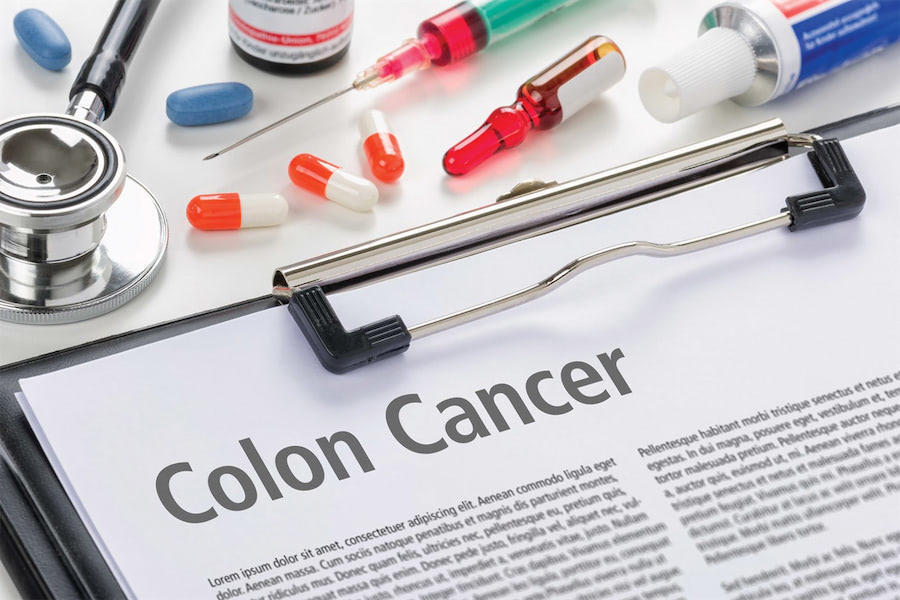
Colon cancer, a leading cause of cancer-related deaths, can often be prevented through early detection and lifestyle modifications. Understanding the various strategies for prevention and the available treatments can significantly impact outcomes for individuals at risk or diagnosed with this disease.
Prevention of Colon Cancer
Preventing colon cancer involves a combination of lifestyle adjustments, regular screenings, and, for some, genetic counseling. Here are key strategies to reduce the risk:
- Regular Screening: Early detection of precancerous polyps through screening is the most effective way to prevent colon cancer. Individuals are generally recommended to start regular screening at age 45, but those with a family history of the disease may need to start earlier.
- Dietary Modifications: Adopting a diet rich in fruits, vegetables, and whole grains, and low in red and processed meats can lower the risk of colon cancer. Diets high in fiber are particularly beneficial.
- Physical Activity: Regular physical activity is associated with a lower risk of colon cancer. Aim for at least 150 minutes of moderate exercise or 75 minutes of vigorous exercise each week.
- Maintain a Healthy Weight: Obesity increases the risk of colon cancer. Weight loss and maintaining a healthy weight can reduce this risk.
- Limit Alcohol and Quit Smoking: Alcohol consumption and smoking are linked to an increased risk of colon cancer. Limiting alcohol intake and quitting smoking can lower your risk.
- Consider Genetic Counseling: For individuals with a family history of colon cancer or genetic syndromes that increase the risk, genetic counseling can provide insights and recommendations for early and more frequent screening.
Treatments for Colon Cancer
The treatment for colon cancer depends on its stage, location, and other health factors affecting the patient. Treatment options include:
- Surgery: For early-stage colon cancer, surgery to remove polyps during a colonoscopy may be sufficient. More advanced cancer may require partial colectomy, removing part of the colon containing the cancer, along with nearby lymph nodes.
- Chemotherapy: Used after surgery to kill any remaining cancer cells, chemotherapy is also employed before surgery in some cases to shrink the tumor and as the main treatment for cancers that have spread.
- Radiation Therapy: Often used alongside chemotherapy, especially for rectal cancer, radiation therapy is less commonly used for colon cancer but may be recommended in certain situations.
- Targeted Therapy: Focuses on specific molecules and signaling pathways to block cancer growth and spread. It's often used for advanced colon cancer.
- Immunotherapy: Utilized for colon cancers that are high in microsatellite instability (MSI-high), immunotherapy helps the immune system recognize and destroy cancer cells.
- Supportive Care: Managing symptoms and side effects is an essential part of treatment and maintaining quality of life. Supportive care can include pain management, nutritional support, and psychological support.
Living with Colon Cancer
Living with colon cancer presents various challenges, both physically and emotionally. However, with advancements in medical treatments and support systems, many individuals continue to lead fulfilling lives. It's crucial to stay informed about your condition, actively participate in your treatment planning, and communicate openly with your healthcare team. Engaging with support groups, either in person or online, can offer comfort and advice from those who understand the journey firsthand. Additionally, focusing on self-care practices, such as maintaining a healthy diet, getting regular exercise, and finding time for relaxation and hobbies, can significantly contribute to both your physical well-being and mental health during this time.
Ongoing Research and Future Directions in Colon Cancer Treatment
Beyond the clinical treatments, the role of personal resilience and a supportive community cannot be understated in the battle against colon cancer. Patients often find strength in shared experiences and the knowledge that they are not facing their diagnosis alone. Access to patient advocacy groups and educational resources can empower individuals to make informed decisions about their care. Equally, maintaining a positive outlook while acknowledging the emotional and psychological challenges of the diagnosis plays a critical role in the overall health and well-being of colon cancer patients.
Conclusion
While colon cancer poses significant health risks, adopting preventive measures and undergoing regular screening can dramatically reduce the incidence and mortality associated with this disease. For those diagnosed, advancements in treatment offer hope for effective management and, in many cases, cure. Collaboration between patients and healthcare providers in developing a comprehensive approach to prevention and treatment is crucial for optimizing outcomes.
